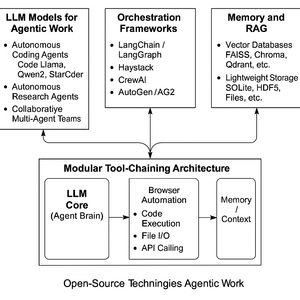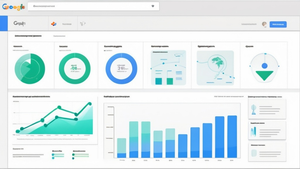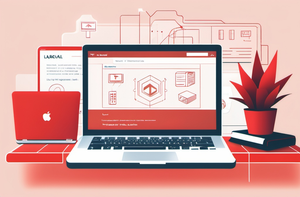Best Software Tools for Cybersecurity Experts to Navigate Securely
In today’s digital age, cybersecurity professionals must remain vigilant to ensure the safety and security of sensitive data and networks. One of the key aspects of maintaining security is using reliable software tools that enhance privacy, secure communications, and protect systems from cyber threats. Below is a curated list of some of the best software tools that cybersecurity experts rely on to navigate the digital landscape securely.
1. Tor Browser
Tor (The Onion Router) is a must-have tool for cybersecurity experts who value anonymity while browsing the web. It routes your internet traffic through a network of volunteer-operated servers, masking your IP address and encrypting your data.
Key Features:
- Anonymous browsing by hiding your location and identity.
- Access to .onion sites on the dark web.
- Protection against traffic analysis and surveillance.
While Tor is a powerful tool for staying anonymous online, it’s essential to use it responsibly and in conjunction with other security tools.
2. VPN (Virtual Private Network)
A VPN is a critical tool for cybersecurity experts. It encrypts internet traffic and hides your IP address, making it difficult for hackers to intercept data. Many VPN services are available, but some of the most recommended for cybersecurity professionals include:
- NordVPN: Known for its high-level encryption and no-logs policy.
- ExpressVPN: Offers fast speeds and robust security features.
- ProtonVPN: Developed by the creators of ProtonMail, it focuses on privacy and security.
Key Features:
- Secure encrypted connection between your device and the internet.
- Access to geo-blocked content and services.
- Additional security when using public Wi-Fi networks.
3. Wireshark
Wireshark is a network protocol analyzer that allows cybersecurity experts to inspect data in real-time. It’s an essential tool for detecting anomalies and troubleshooting network issues.
Key Features:
- Captures and analyzes network traffic.
- Supports hundreds of protocols.
- Helps in identifying vulnerabilities and potential attack vectors.
Wireshark is particularly valuable for deep packet inspection, helping cybersecurity professionals detect potential threats within network traffic.
4. KeePass
A strong password manager is vital for any cybersecurity expert. KeePass is a free, open-source password manager that stores passwords securely and generates strong, unique passwords for various accounts.
Key Features:
- AES-256 encryption for maximum security.
- Cross-platform compatibility.
- Two-factor authentication support.
KeePass helps cybersecurity professionals manage and organize complex passwords while ensuring they are safe from unauthorized access.
5. Kali Linux
Kali Linux is the go-to operating system for cybersecurity experts. It comes preloaded with hundreds of tools designed for security testing and ethical hacking. It’s widely used for penetration testing, security research, and vulnerability assessments.
Key Features:
- Packed with pre-installed cybersecurity tools (e.g., Nmap, Metasploit, Burp Suite).
- Regular updates to keep up with new vulnerabilities and security tools.
- Strong community support and documentation.
Whether performing a security audit or conducting ethical hacking, Kali Linux provides a robust platform for cybersecurity tasks.
6. Tails OS
Tails (The Amnesic Incognito Live System) is a live operating system designed for maximum security and privacy. It routes all internet connections through the Tor network and doesn’t leave any traces on the system once shut down.
Key Features:
- Runs from a USB drive, leaving no footprint on the host system.
- All internet traffic is routed through Tor.
- Ideal for securely accessing sensitive data and systems.
Tails is a highly secure option for professionals needing to maintain privacy and anonymity while navigating online.
7. ClamAV
ClamAV is an open-source antivirus engine that’s particularly useful for detecting malware, viruses, and other malicious threats. It’s widely used by cybersecurity experts in scanning files, email attachments, and networks.
Key Features:
- Cross-platform support (Windows, macOS, Linux).
- Regularly updated virus definitions.
- Fast scanning capabilities and high detection rate.
ClamAV is a lightweight but powerful tool that can be integrated into larger security systems to help protect networks and data from malicious threats.
8. OpenVAS
OpenVAS (Open Vulnerability Assessment System) is a full-featured vulnerability scanner that identifies potential weaknesses in your systems. It is widely used by cybersecurity experts for vulnerability management and network security assessments.
Key Features:
- Comprehensive vulnerability scanning for networks, servers, and applications.
- Regular updates with new vulnerability tests.
- Integration with other security tools like Metasploit.
OpenVAS is essential for identifying potential security risks and taking preventive action before malicious actors can exploit vulnerabilities.
9. Qubes OS
Qubes OS is a security-focused operating system that enables isolation by compartmentalizing different applications and tasks. This helps in mitigating attacks and reducing the risk of malware spreading across your system.
Key Features:
- Isolates programs in different virtual machines (VMs) for maximum security.
- Protects sensitive data from being accessed by malicious software.
- Offers strong security without sacrificing usability.
Cybersecurity professionals benefit from using Qubes OS to secure their systems against complex threats by creating secure environments for different tasks.
10. Burp Suite
Burp Suite is a comprehensive toolset designed for web application security testing. It’s used by cybersecurity experts to identify vulnerabilities such as SQL injection, cross-site scripting (XSS), and other potential security risks in web applications.
Key Features:
- Integrated platform for performing web vulnerability scans.
- Automated and manual penetration testing capabilities.
- Strong community and professional versions for different levels of use.
With Burp Suite, cybersecurity experts can efficiently secure web applications and protect them against common attack vectors.
Conclusion
Navigating the digital world securely requires the right tools. From anonymity-focused browsers like Tor to vulnerability assessment platforms like OpenVAS, the above software tools are essential for cybersecurity experts. By using these tools, professionals can better protect themselves and their clients from the ever-growing number of cyber threats.







Comments